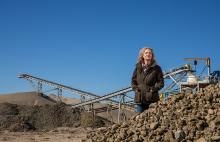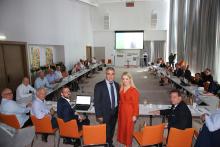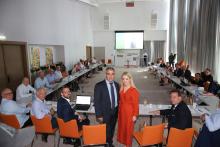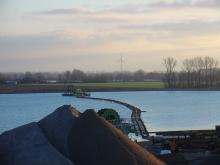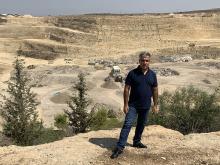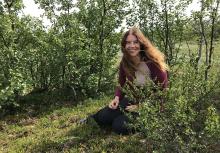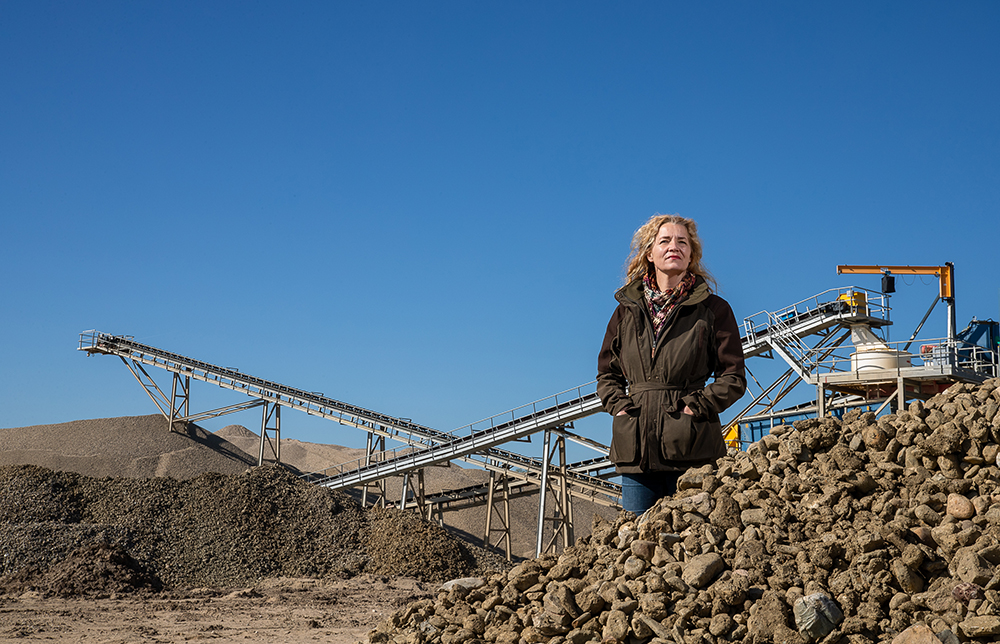
Leonie van der Voort’s current in tray has three critical, domestic aggregates industry issues that need to be urgently addressed.
“There is a housing crisis in the Netherlands. One million more houses must be built by 2030. The total demand for building materials far exceeds the supply of secondary building materials obtained from demolition. Therefore, primary materials are much needed, now and in the future. It is important to acquire new permits for the extraction of raw materials.
“There needs to be recognition of the importance of primary raw materials as part of the circular economy. Circular construction starts with a circular design and keeping the construction chain clean. The starting point of the circular economy should not be waste, but rather the use of high-quality materials.
“Finally, we at Cascade want to see recognition of the social and economic contribution primary raw-material extraction makes to the Netherlands. River widening, positive climate adaptation and nature development should also be fundamentally taken into account in the country’s environmental footprint.”
Cascade’s director explains that in addition to the national importance of extracting sand, including silver sands, gravel, limestone sand, and clay, to build and maintain the Netherlands’ infrastructure and Dutch people’s quality of life, marine aggregates production is also crucial to maintain “coastal nourishment”.
“In 2020, the production of aggregates in the Netherlands was approximately 72 million tonnes, including extraction of fill sands (which is generally not the core business of Cascade members), while the consumption of aggregates was approximately 83 million tonnes. For gravel and industrial sand used for concrete, the Netherlands is not fully self-sufficient. For other aggregates, such as sand used for road foundations, the country produces a bit more than it needs, which means that some export takes place. For gravel and industrial sand used in concrete, the Netherlands partly relies on import.”
Cascade members are, notes van der Voort, mainly engaged in the production of sand and gravel for concrete and the diverse needs of the Dutch construction industry.
A recently published Dutch Economic Institute for Construction (EIB) study on expected aggregates volumes becoming available from demolition compared to the need for primary building materials, is something van der Voort is keen to highlight. “This study lists facts on the availability of these materials based on scientific insights. Some results of this study are shown in a graph [see below]. It shows that the demand for building materials is much bigger than materials becoming available from demolition.
“Although the government has consistently taken the position that a 50% reduction in the use of raw materials should be achieved by 2030, and even a 100% reduction by 2050, officials are now starting to see that this is not a realistic target, given the enormous construction tasks at hand.
“Cascade’s take on this is that a 50% reduction in 2030 is unfeasible. The demand is high, therefore primary materials are still much needed.”
The Netherlands, notes van der Voort, has no national policy with regard to the extraction of raw materials. “A national policy was abandoned in 2000 with the idea that construction in the Netherlands is ‘completed’. The policy and authority on the extraction of raw materials have been decentralised to the provincial level. At the national level, there is no insight into the need for building materials, nor is there any insight into the actual production of building materials. This might soon lead to major problems in terms of the availability of building materials.
“Cascade has made great efforts in recent years to bring this important theme back on the agenda of the national government. This is now starting to pay off. I think this is the association’s biggest achievement in addition to bringing attention to the wider public that the realisation of our project helps to achieve other major social goals, such as climate adaptation and nature development.”
I ask van der Voort, Cascade’s director since 2011, what the association’s biggest achievements have been under her leadership. “Cascade’s brand awareness has grown enormously; we are proactively approached by governments with questions about building materials.”
Based in Kerkdriel, in the heart of the Netherlands, Cascade always states that primary aggregates need to be extracted additionally to the available secondary materials. Nonetheless, as the EIB graph showed, a lot of primary aggregates are still needed to meet the demand.
“It is Cascade’s view that it is already possible to build a 100% circular economy,” stresses van der Voort. “Circularity is the prevention of creating waste, which means that all materials should be easy to reuse after a lifecycle. This can be done now already by designing buildings in such a way that the materials can easily be extracted after the first lifecycle. However, in this case a prerequisite is that only clean materials are used, and the production chain is kept clean during the whole process.”
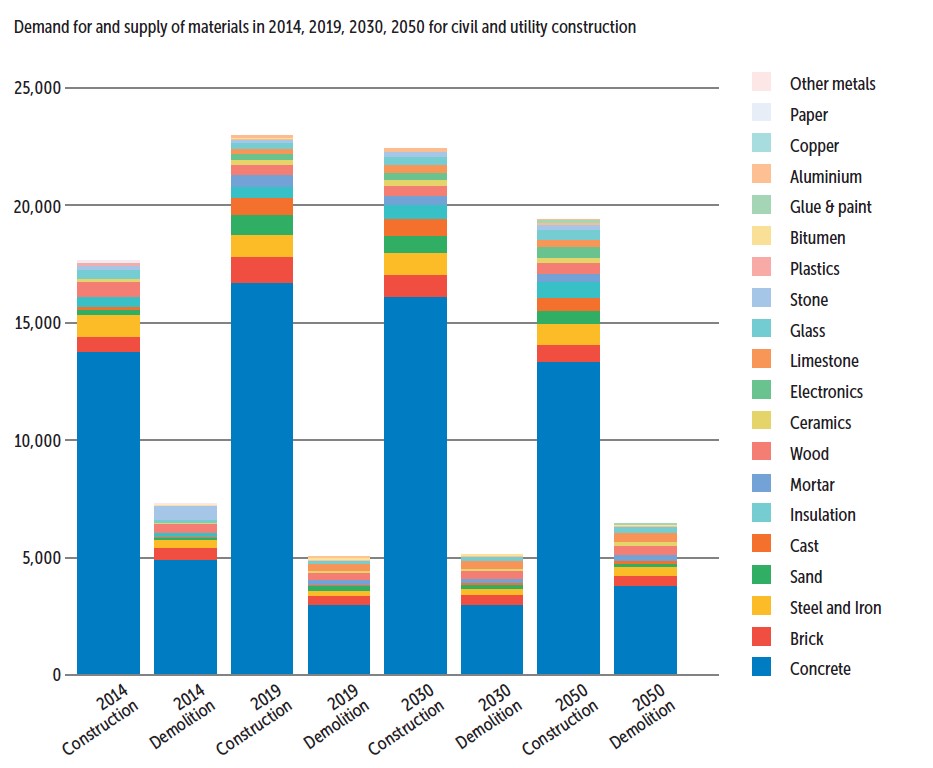
Over recent decades, Cascade members have, says van der Voort, carried out many projects in which mineral extraction is combined with nature development, water safety and recreation. “We asked the Wageningen University and the Vlinderstichting (butterfly foundation) to carry out research about the biodiversity increase in our members’ projects. The results were spectacular! We often use the results of this research in publications and presentations.”
Since 2018, van der Voort, who lives with her husband and two daughters in a farmhouse in Hellouw, a small village next to the river Waal in the Dutch province of Gelderland, has also worked as the treasurer of UEPG (the European Aggregates Association). I ask how her work at a wider European level helps her directorship of Cascade and support for Dutch aggregates industry operators.
“UEPG is important to the Netherlands. Many laws and regulations that affect our aggregates industry come from Brussels. A small association like Cascade is not able to keep up with wider European industry developments all by itself. A strong UEPG is important for the European aggregates industry, and it is important that Cascade has a place on the UEPG board through my association treasurer role.”
Before taking up her Cascade leadership role, van der Voort, who has a biology degree from Wageningen University, worked in various Dutch national government departments with a focus on sustainability and nature. “Because I was interested in these subjects, I came into contact with Cascade and its members, which led to the director’s role opportunity,” she explains.
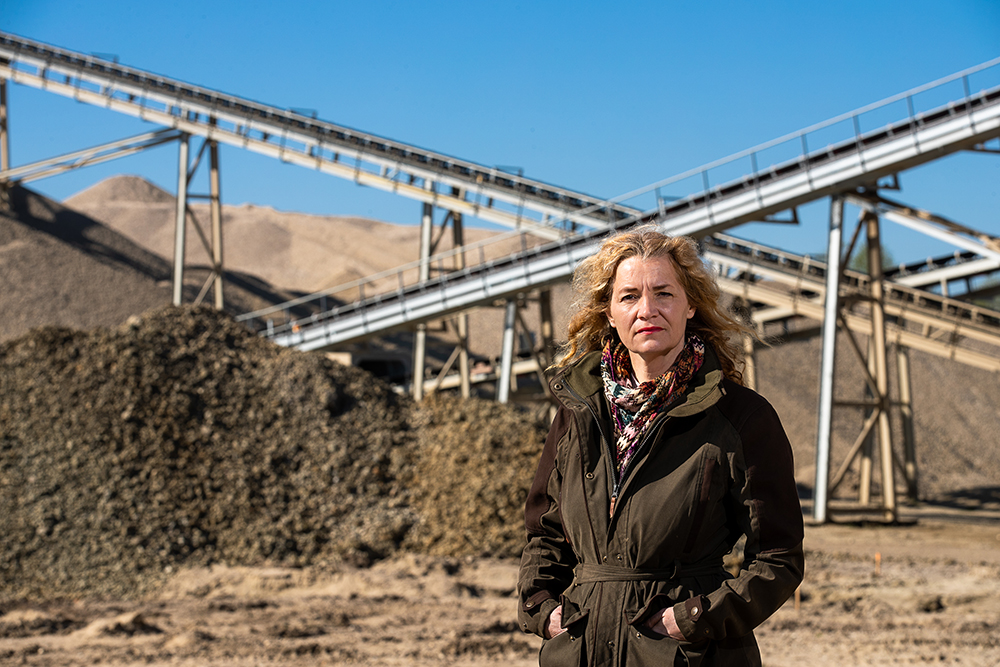
“Because we are a small trade association, I deal with many different topics at different levels. I especially like the personal contact with all kinds of different stakeholders. Sometimes it is frustrating that progressing issues further at different governmental levels, including at the European Commission level, can take a very long time, often years! For me, alternating longer-term work with short-term positive projects at a national level keeps my work attractive.
“A personal wish of mine is to put Cascade’s aggregates industry advocacy even more on the agenda of policymakers. We must be noticed even more than we are now, especially as a reliable partner and recognised provider of industry knowledge.”
I end by asking van der Voort how she sees the Dutch aggregates industry changing in the next ten years. “In our industry, the switch to using fully electric machines in aggregate extraction has started. This will be continued in the next few years. Hydrogen-powered machines might also be commonplace in the future. All these welcome efforts are being made to reduce the use of fossil fuels, now and in the future. And since the Netherlands is located in a delta dealing with many ‘water issues’, we aim to continue our indispensable contribution to the climate-adaptation project to keep the country safe.”

